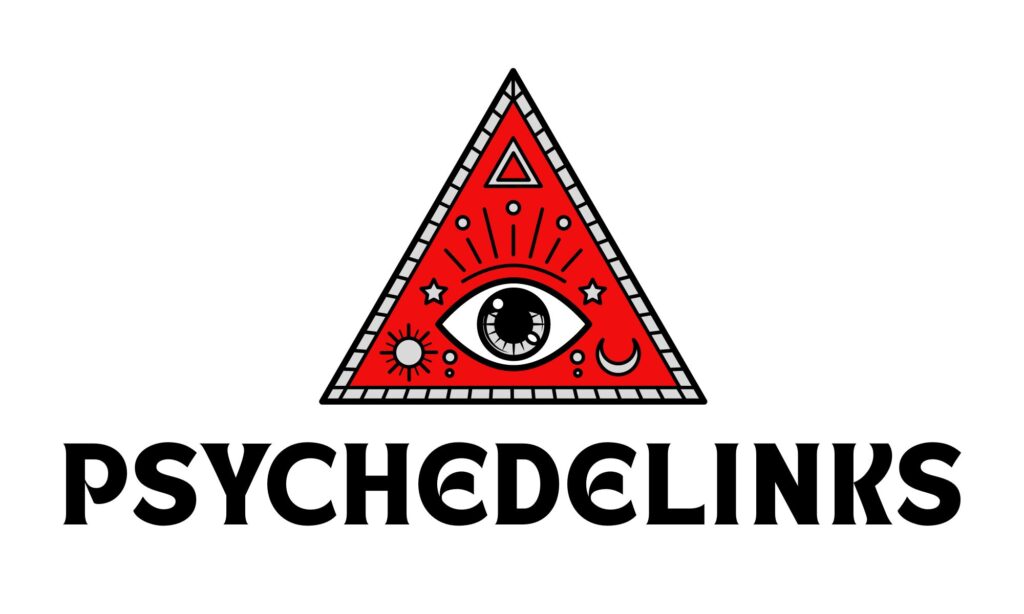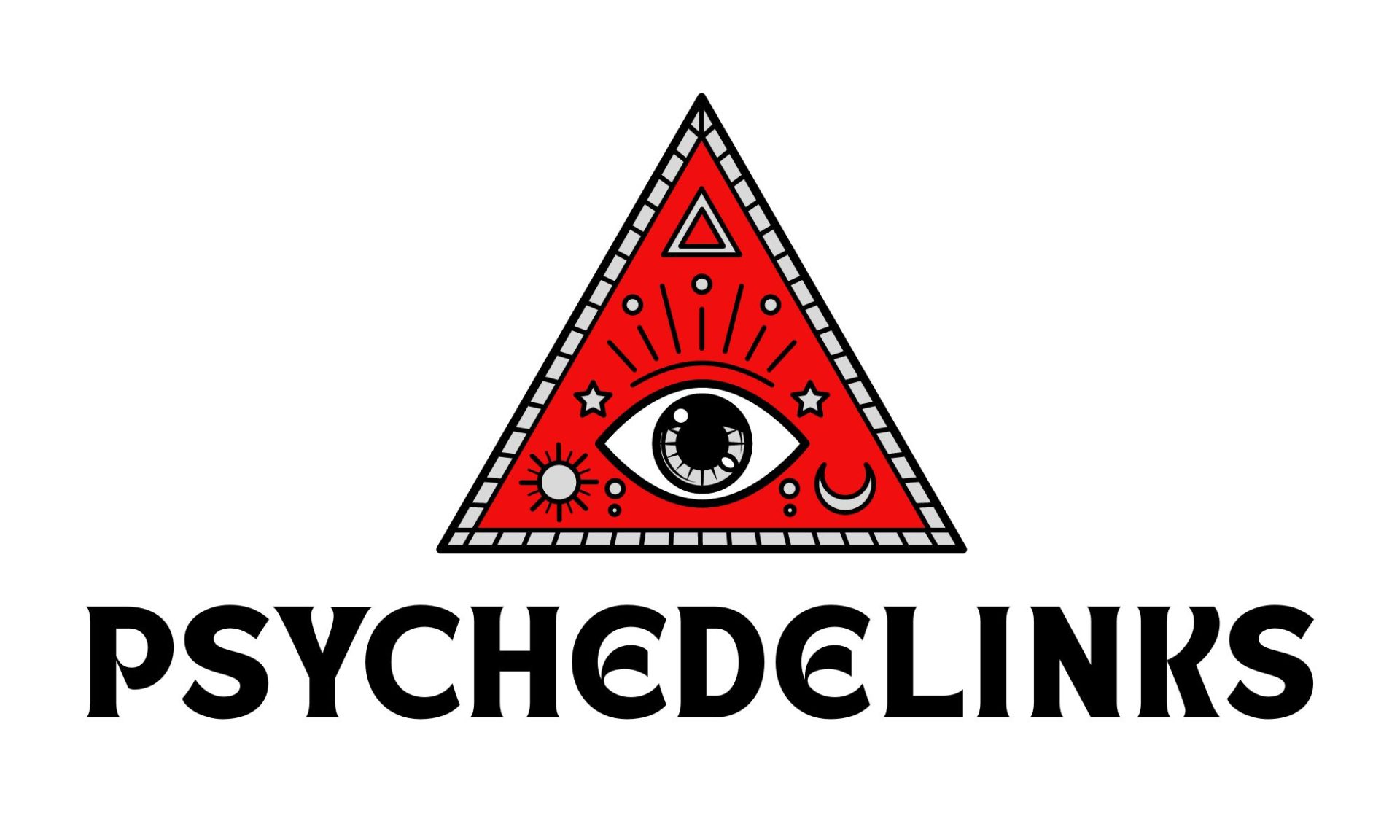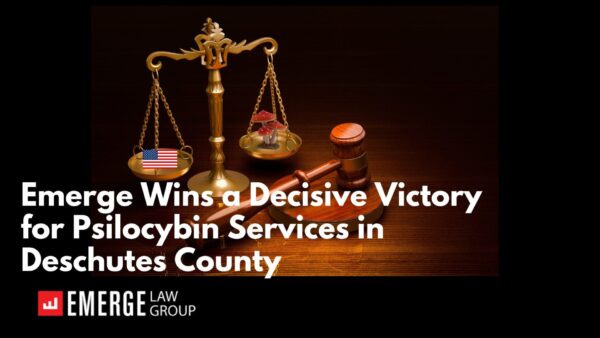PsychedeLinks is a curated selection of top news stories impacting business, research, and culture in the psychedelics ecosystem, crafted by Emerge Law Group’s groundbreaking Psychedelics Group.
Emerge’s Hot Take
Oregon Approves Nation’s First Psilocybin Facilitator Licenses to Administer Psychedelic
As of May 1, the Oregon Health Authority (OHA) has issued 3 manufacturer licenses, 1 laboratory license, and 5 facilitator licenses. First and foremost, congratulations to the newly licensed laboratory and facilitators! However, it remains to be seen when the OHA will issue the first service center license(s), and the business models that those first service centers have in mind. “To keep costs affordable and psilocybin services accessible to a wide variety of people, we need a wealth of service center business models ranging from microdosing, to no-frills single room sessions, to more comprehensive resort-style options,” says Emerge attorney, Kaci Hohmann. “If regulated businesses can’t pass on rates to clients that compete with the underground, then the program simply won’t meet its intention to provide affordable access to the public. That would be a real failure and one I hope will be avoided as service centers come online in the coming months and years.”
Other Noteworthy News
Colorado House Approves Senate-Passed Psychedelics Regulation Bill
“The Colorado House of Representatives approved a Senate-passed bill to create a regulatory framework for legal psychedelics under a voter-approved initiative. The legislation seeks to set policies on “healing centers” where adults 21 and older could receive psychedelic treatment, tighten up rules on cultivation and facilitators, establish licensing requirements, dictate state agency regulatory responsibilities and impose penalties for unsanctioned activities. During Thursday’s House Finance Committee hearing, members adopted a series of amendments, including adding language to clarify that using psychedelics would not be a violation of probation or parole[.] Another adopted amendment makes various changes, including: requiring psychedelic facilitators to inform participants if they are not licensed; making it so psychedelics business employees have to comply with the state’s general fingerprinting rules for practitioners; clarifying that protections for parental rights of people who use psychedelics are limited in cases where the health and safety of a child is threatened; and making changes to definitions of psychedelic business entities that were requested by municipal officials. On the floor on Friday, members adopted additional amendments to clarify that personal cultivation of psychedelics can be done outside of a residence (such as in a greenhouse) as long as it is on someone’s own property in an enclosed and locked space, direct regulators to collect data on drug use trends, require regulators develop an equity plan and define federally recognized tribes cited in the bill. The body also rejected several amendments, including ones that would have given local officials authority to further restrict psychedelic services, required businesses to have liability insurance policies, added progesterone to the definition of natural medicines being legalized and regulated under the bill, included pregnancy resource centers in the definition of healing center while exempting them from licensing requirements and removed the phrase “or related services” from the definition of personal use.”
US Could Soon Approve MDMA Therapy – Opening an Era of Psychedelic Medicine
“For Rick Doblin, 2023 could be a landmark year: the year that the US government decides whether it will allow the use of hallucinogenic drugs to treat mental illness. Doblin…is the founder and president of the non-profit organization Multidisciplinary Association for Psychedelic Studies (MAPS). MAPS has now completed a second, larger trial that it says has also produced positive results. After that study is published in the coming months, MAPS plans to ask the US Food and Drug Administration (FDA) to approve the drug as a legal treatment for PTSD, probably by October. But many questions remain in the short term, chiefly how MDMA will be administered and by whom. MAPS officials say that the drug must be given in concert with a psychotherapy protocol developed by the company’s scientists, but the FDA does not typically regulate such treatments. Some worry that premature approval of the drugs could frustrate scientific progress. In 2020, the state of Oregon voted to legalize psilocybin for therapeutic use. And in February, researchers around the world were shocked when Australia’s Therapeutic Goods Administration announced that it would legalize MDMA as a PTSD treatment as of 1 July. Australia’s move could put pressure on the FDA to approve MDMA and open a larger market in the United States. MAPS intends to commercialize MDMA for profit, but its long-term plans are unclear. In 2014, the organization created a public-benefit corporation (PBC) — a company that attempts to balance shareholders’ financial interests and the public interest. Beyond that, Doblin says, MAPS PBC hasn’t decided what its future will look like. “I’m on the knife’s edge between capitalism and altruism,” Doblin says.”
MindMed Collaborators Announce Positive Phase II Results for LSD in Major Depressive Disorder
“NYC-based clinical-stage biopharmaceutical company Mind Medicine (MindMed) announced that Swiss collaborators at the University Hospital Basel (UHB) and the University Hospital of Psychiatry have released positive topline data from a double-blind, investigator-initiated trial evaluating lysergide in the treatment of major depressive disorder (MDD). A few years back, MindMed entered into a pretty broad research collaboration with Matthias Liechti, MD, PhD, at the University Hospital Basel. As part of the collaboration between MindMed and Liechti, a number of investigator-initiated studies have been and are being conducted with lysergide. The Phase II study, led by Liechti and Felix Mueller, MD, consisted of 61 patients with MDD given two doses of lysergide four weeks apart. A high-dose group received doses of 100 μg on day zero and 200 μg on day 28, and a low-dose group received 25 μg on both days, which is about the perceptual threshold for lysergide, according to Barrow. Consistent with a long history of positive results in hundreds of patients in over 20 studies, lysergide showed significant, rapid, and beneficial effects, as well as the potential to alleviate MDD symptoms. The Swiss collaborators saw a clinically and statistically significant response for the primary endpoint: a statistically significant 12.9-point reduction in the high-dose group versus a 3.6 reduction in the low-dose group.”
Executive Behind Chat GPT Pushes for a New Revolution: Psychedelics
“Sam Altman, chief executive of OpenAI, is chairman of a start-up that aims to tap into the promise that psychedelic drugs have shown in clinical trials — and make them broadly available for people who suffer from mental health and drug-use disorders. The firm, Journey Colab, is partnering with a luxury rehab clinic, All Points North, to shepherd drugs like MDMA and psilocybin through late-stage trials and design a model for administering them to patients. Altman’s foray into psychedelics showcases the buzz that the drugs have kindled in Silicon Valley, with venture capitalists betting millions of dollars that such therapies will transform treatment for mental health disorders and drug addiction. He is entrusting the details of this to Chowdhury, a Rhodes scholar and physician-turned-entrepreneur, who came to psychedelics through his own mental health struggles and credits them with saving his life. Chowdhury freely acknowledges that he doesn’t yet have a business model, but envisions Journey becoming a specialty service, providing psychedelic care to patients at rehab clinics the way wound-care specialists are contracted by hospitals. To begin with, he said, Journey is working to partner with firms conducting clinical trials on MDMA and psilocybin to run them at a rehab center near Vail, Colo. Journey Colab has emphasized making psychedelic therapy accessible to marginalized communities — it has reserved 10 percent of its founding equity in a trust to benefit U.S. Indigenous groups — but is first focused on delivering the care with all of the supports available in a facility like All Points North.”
Subscribe
Subscribe to PsychedeLinks to receive essential biweekly articles on news, business, and culture in the psychedelics industry, delivered straight to your inbox.



